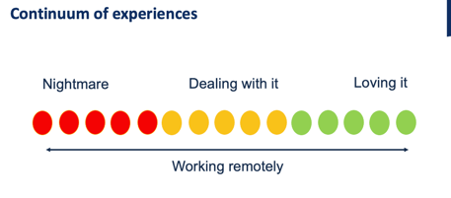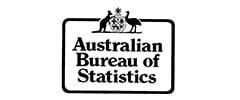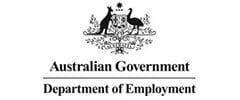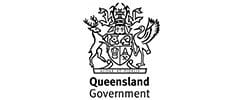For Mental Health Awareness 2021 week we shine a spotlight on lockdown fatigue caused by working remotely.
Lockdown fatigue is a term that is becoming a part of our every-day discussions.
Natalie speaks to by our mental health training specialist, Nick, for this coaching café. We discuss recognising the signs of lockdown fatigue. Furthermore, how it affects our mental health. Importantly how to have conversations or coach our team members through these times.
What is lockdown fatigue?
Lockdown fatigue refers to the tiredness and strains that we are feeling. Particularly because of the restrictions being placed on us. The need to work remotely. Furthermore, the multiple demands that we are facing. With our largest states still experiencing lockdown, ‘lockdown fatigue’ is likely setting in for your teams. And if you aren’t in lockdown, chances are that you’re working with people or teams who are.
Humans are not designed to thrive in lockdown conditions. Consequently, it’s no surprise that the strain of lockdowns and working remotely is influencing our mental health. This includes our approach to work interactions and how we deal with challenges on the home front.
Other key tips for coping with lockdown and remote work
However, in addition, we can make sure that:
- goals are realistic
- the workload is equitably spread
- we focus on strong communication
- people are encouraged to speak up and ask for help
- team members log off at the end of the business day, rather than extending the hours
- keeping up basic things like eating well and exercising.
We all have different experiences
It is important to acknowledge that we all have different experiences of working remotely.
Across the Open Door Alumni, people have expressed a strong sense of tiredness and uncertainty. Furthermore, people are feeling unmotivated and less productive at work. In addition, there’s guilt that comes wanting to high achieve or hit goals, but not feeling motivated.
You can use the Continuum above to check in with people and start a conversation. Perhaps show the Continuum to your team member and ask:
Simple questions like ‘where are you sitting today?’ or ‘how are you feeling today?’
You can also increase your skills and awareness of mental health by attending our nationally acclaimed Mental Health First Aid Training.
Reach out for help
Furthermore, check in on yourself. Because as leaders, we carry an extra load of making sure our teams are ok and have everything they need. Whilst at the same time, dealing with our own work and home life challenges.
In addition, Victoria’s Chief Psychiatrist addressed the rising concern over the impact of lockdowns on child mental health. He advises families to reach out to the school community and resources like Kids Helpline.
Therefore, if you or someone you know needs assistance there are numbers below to contact.
If you or anyone you know needs help:
- Lifeline on 13 11 14
- Kids Helpline on 1800 551 800
- DirectLine Victoria drug/alcohol counselling on 1800 888 236
- MensLine Australia on 1300 789 978
- Suicide Call Back Service on 1300 659 467
- Yarning SafeNStrong on 1800 95 95 63
- Beyond Blue on 1300 224 636
- Headspace on 1800 650 890
- ReachOut at au.reachout.com
- Care Leavers Australasia Network (CLAN) on 1800 008 774
- HeadtoHelp on 1800 595 212
- Brother to Brotheron 1800 435 799
FREE Coaching Cafe Webinar
Every week our team of experts present “Coaching Cafe” webinar with topics for Managers, Leaders, Business Owners, and everyone who wants to be a better workplace coach, leading their teams to higher productivity, better outcomes and a happier, healthier workplace.




































